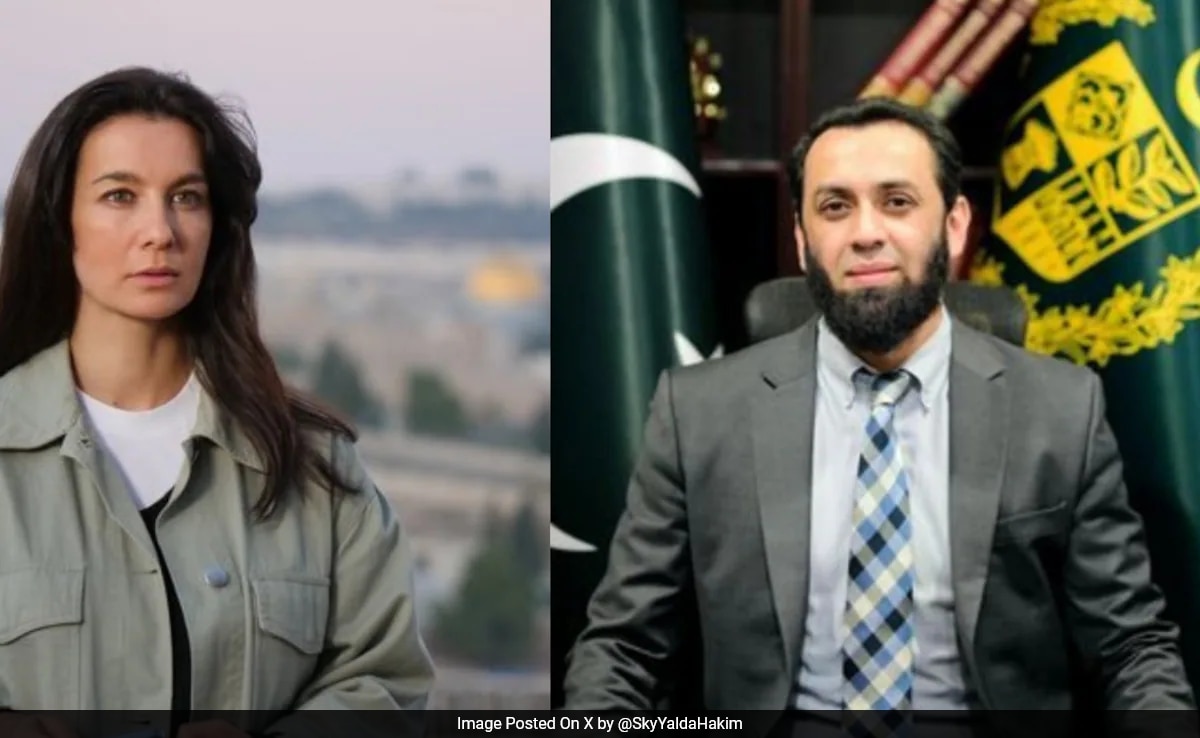Pakistan’s Information and Broadcasting Minister, Attaullah Tarar, faced scrutiny on Sky News as Yalda Hakim challenged his claims about Pakistan’s stance on terrorism. The discussion centered on Pakistan’s history concerning support for terrorist organizations, a topic that gained renewed attention following India’s recent military actions targeting terror camps in Pakistan and Pakistan-Occupied Kashmir (POK). This confrontation highlights the ongoing tensions and scrutiny surrounding Pakistan’s role in regional security.
Hakim’s pointed questions and fact-checking exposed inconsistencies in Tarar’s narrative, particularly regarding the existence of terrorist camps within Pakistan. The exchange also touched upon previous admissions by Pakistani officials about the country’s involvement in supporting terrorist groups. This article delves into the key moments of the interview, providing context and analysis of the claims and counterclaims made.
We will explore the implications of these revelations, examining how they contribute to the broader discourse on counter-terrorism efforts and international relations in the region. Furthermore, we will consider the responses from both Pakistani and Indian officials, as well as the perspectives of international observers.
Attaullah Tarar’s Denials and Claims
During his appearance on Sky News, Attaullah Tarar vehemently denied the presence of terrorist camps in Pakistan. He asserted that Pakistan itself is a victim of terrorism and has been actively combating it, especially along its western borders. Tarar emphasized the sacrifices made by Pakistan in the fight against terrorism, claiming that the nation has lost 90,000 lives in this ongoing battle.
Tarar also accused India of not condemning the Jafar Express hijacking, suggesting a lack of concern from the Indian side regarding incidents of terrorism. He positioned Pakistan as a frontline state in the global war against terror, acting as a crucial barrier between terrorists and the rest of the world. However, these claims were quickly challenged by Yalda Hakim, who brought forth conflicting statements from other Pakistani officials.
“Let me make it very clear, there are no terrorist camps in Pakistan. Pakistan is a victim of terrorism. We are fighting terrorism on our western borders. We are the frontline state against terrorism. We have laid down 90 thousand lives in this war against terrorism.” – Attaullah Tarar
Yalda Hakim’s Fact-Checking
Yalda Hakim directly challenged Attaullah Tarar’s assertions by referencing past statements made by high-ranking Pakistani officials. She cited Pakistan Defence Minister Khawaja Asif’s admission on her show a week prior, where he acknowledged Pakistan’s decades-long policy of funding and using terrorist groups as proxies. Hakim also mentioned former President Donald Trump’s decision to cut military aid to Pakistan due to accusations of playing a “double game.”
Hakim further pointed out that even figures like General Parvez Musharraf and Benazir Bhutto had, in the past, acknowledged Pakistan’s involvement with terrorist organizations. She also referenced a recent statement by Bilawal Bhutto, who admitted that funding and backing terrorist organizations had been part of Pakistan’s history. These references created a stark contrast to Tarar’s denials, putting him on the defensive.
“On my programme, just a week ago, your Defence Minister Khawaja Asif admitted that Pakistan has for decades had a policy of funding, backing and using terrorist groups as proxies in the country (India). In fact, in 2018, President Donald Trump cut military aid to Pakistan because he accused Pakistan of playing a double game.” – Yalda Hakim
The Osama Bin Laden Revelation
Adding to the pressure, Yalda Hakim reminded Attaullah Tarar of the fact that Al-Qaeda founder Osama bin Laden was discovered in Abbottabad, Pakistan, before being killed by US forces in 2011. This revelation served as a stark reminder of Pakistan’s complex history with terrorism and the presence of high-profile terrorists within its borders. The discovery of bin Laden in Pakistan raised serious questions about the country’s knowledge and involvement in harboring terrorists.
Hakim’s reminder directly contradicted Tarar’s claim that Pakistan is a guarantor of world peace and a wall between terrorists and the rest of the world. The exchange underscored the challenges Pakistan faces in convincing the international community of its commitment to combating terrorism, given its past associations and the presence of terrorist leaders within its territory.
“I have been to Pakistan, and we know that Osama Bin Laden was discovered in Abbottabad in Pakistan.” – Yalda Hakim
India’s Response and Actions
India responded to the situation by asserting its right to take preemptive action against cross-border terrorism. Foreign Secretary Vikram Misri stated that India’s actions were measured, non-escalatory, proportionate, and responsible, focusing on dismantling terror infrastructure and disabling terrorists. Misri also referred to the United Nations Security Council’s statement on the Pahalgam attack, which emphasized the need to hold accountable those responsible for acts of terrorism.
India’s military actions, including strikes on Jaish-e-Mohammad and Lashkar-e-Taiba targets, were presented as a necessary response to the threat of terrorism emanating from Pakistani territory. The Indian government emphasized its commitment to protecting its citizens and preventing future attacks, while also maintaining regional stability.
“India’s latest action should be seen in this context.” – Vikram Misri, Foreign Secretary
Conclusion: Implications and Future Outlook
The exchange between Yalda Hakim and Attaullah Tarar highlights the ongoing challenges in addressing terrorism and fostering trust between nations. Hakim’s fact-checking exposed the complexities of Pakistan’s relationship with terrorism, challenging the narrative presented by the Pakistani government. The incident underscores the importance of transparency and accountability in combating terrorism and promoting regional security.
The differing perspectives and historical context surrounding the issue contribute to a complex and sensitive situation. Moving forward, it is crucial for all parties to engage in constructive dialogue and work towards building a more secure and stable region. International cooperation and adherence to international norms are essential in addressing the root causes of terrorism and preventing future conflicts.
The incident serves as a reminder of the importance of media scrutiny and the role of journalists in holding public officials accountable. By questioning claims and presenting evidence, journalists can contribute to a more informed public discourse and promote greater transparency in matters of national and international importance.

Leave a Reply